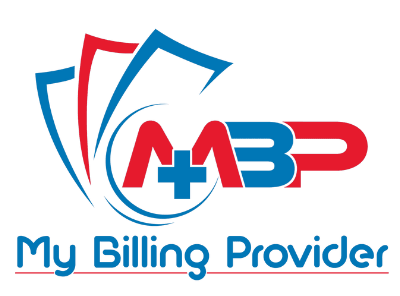What Is AI in Medical Billing?
AI in medical billing refers to the use of artificial intelligence technologies to automate and optimize the healthcare revenue cycle. By leveraging AI tools, healthcare providers can streamline claim processing, reduce human errors, and accelerate reimbursements. For clinics, hospitals, and billing managers, adopting AI in medical billing isn’t just about technology—it’s about improving cash flow, ensuring accuracy, and freeing staff to focus on patient care.
How AI Is Transforming the Revenue Cycle
The healthcare revenue cycle is complex, involving patient registration, insurance verification, claim submission, payment posting, and denial management. AI is transforming this process in several ways:
- Automation of repetitive tasks: AI can automatically verify patient information, code claims, and flag potential errors, reducing manual work.
- Faster claim processing: AI-driven systems quickly analyze large volumes of claims, detect inconsistencies, and submit them accurately.
- Fewer claim denials: By predicting possible rejections and correcting errors before submission, AI reduces denials significantly.
- Integration with RCM tools: AI can be embedded in existing revenue cycle management platforms, providing seamless workflow improvements without overhauling current systems.
With automation in medical billing, healthcare teams no longer spend hours manually coding claims or reconciling payments. This leads to faster reimbursements and a more efficient revenue cycle.
Key Benefits of AI in Medical Billing
Healthcare providers adopting AI in billing experience multiple tangible benefits:
- Fewer human errors: Automated coding and claim verification minimize mistakes, reducing rejected claims.
- Faster payments: Streamlined claim processing ensures quicker reimbursements from insurers.
- Better claim accuracy: AI tools for revenue cycle management cross-check coding, patient data, and insurance requirements to prevent errors.
- Cost savings: Reducing manual labor and claim rework lowers operational costs.
- Improved data insights: AI analyzes billing trends, identifies bottlenecks, and generates actionable reports for management.
For example, clinics using AI-powered billing systems have reported up to 30% faster claim processing and a 25% reduction in denials (source: HIMSS.org).
Real-World Applications of AI in RCM
AI isn’t just a buzzword—it’s actively shaping revenue cycle management through practical applications:
- Denial prediction: AI algorithms analyze past claim patterns to predict potential denials and suggest corrective action.
- Automated ICD/CPT coding: Artificial intelligence medical coding eliminates manual coding errors and improves accuracy.
- Claim verification: AI tools validate insurance details, patient eligibility, and prior authorizations automatically.
- Payment posting automation: Payments from multiple payers are posted efficiently, reducing backlog and human errors.
These applications allow healthcare staff to focus on patient care rather than tedious billing tasks.
Challenges and Limitations
While AI offers significant advantages, healthcare providers should be aware of its limitations:
- Data privacy: Handling sensitive patient data requires strict adherence to HIPAA and other regional regulations.
- Implementation cost: Initial setup of AI systems can be expensive for small practices.
- Staff training: Billing teams must be trained to work with AI tools, which can require time and effort.
Despite these challenges, the long-term benefits of AI in medical billing often outweigh the initial hurdles.
Why Healthcare Providers Are Shifting Toward AI-Driven RCM
The adoption of AI in healthcare revenue cycle management is growing rapidly in the USA, UK, and UAE. Providers recognize that AI reduces administrative burden, minimizes errors, and accelerates reimbursements.
- In the USA, hospitals are integrating AI to handle high-volume claims efficiently.
- In the UK, clinics use AI for automated ICD coding and denial prevention.
- In the UAE, private healthcare providers are adopting AI to optimize billing workflows and improve financial performance.
The industry trend clearly shows that AI-driven RCM is becoming a standard practice, not just an optional upgrade.
How My Billing Provider Uses AI to Improve RCM
At My Billing Provider, we combine 20+ years of experience with advanced AI tools to optimize your revenue cycle:
- Improved accuracy: Our AI-powered systems minimize coding errors and reduce claim denials.
- Faster reimbursements: Automated claim submission and verification speed up payments.
- Actionable insights: Real-time analytics help identify trends, optimize workflows, and improve cash flow.
Book a Free Consultation to Learn More About AI-Powered RCM Solutions.
Final Thoughts
AI in medical billing is no longer optional—it’s a necessity for healthcare providers looking to improve efficiency, accuracy, and revenue. From automating coding to predicting denials, AI streamlines every step of the revenue cycle.
By integrating AI-driven RCM solutions like those offered by My Billing Provider, clinics and hospitals can focus on what truly matters: delivering quality patient care while maintaining a healthy financial cycle.
Want to experience faster reimbursements and fewer denials? Contact My Billing Provider today for an AI-driven RCM consultation.
Learn more:Revenue Cycle Management Solutions • AI-Powered IPDRG Coding Solutions • Automated ICD Coding Tool with AI • Denial Prediction and Prevention Services



创建个人账户
January 19, 2026Your point of view caught my eye and was very interesting. Thanks. I have a question for you.